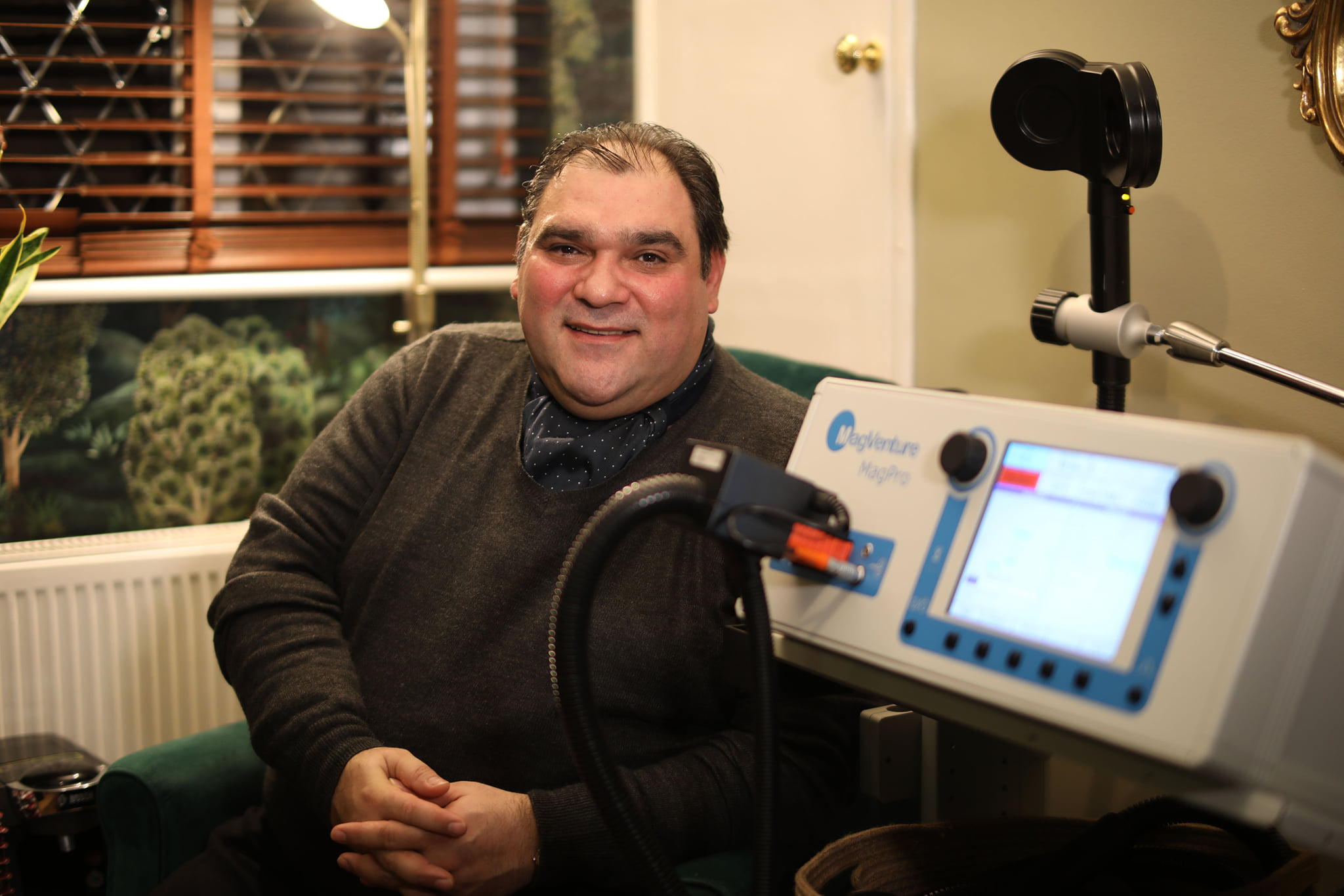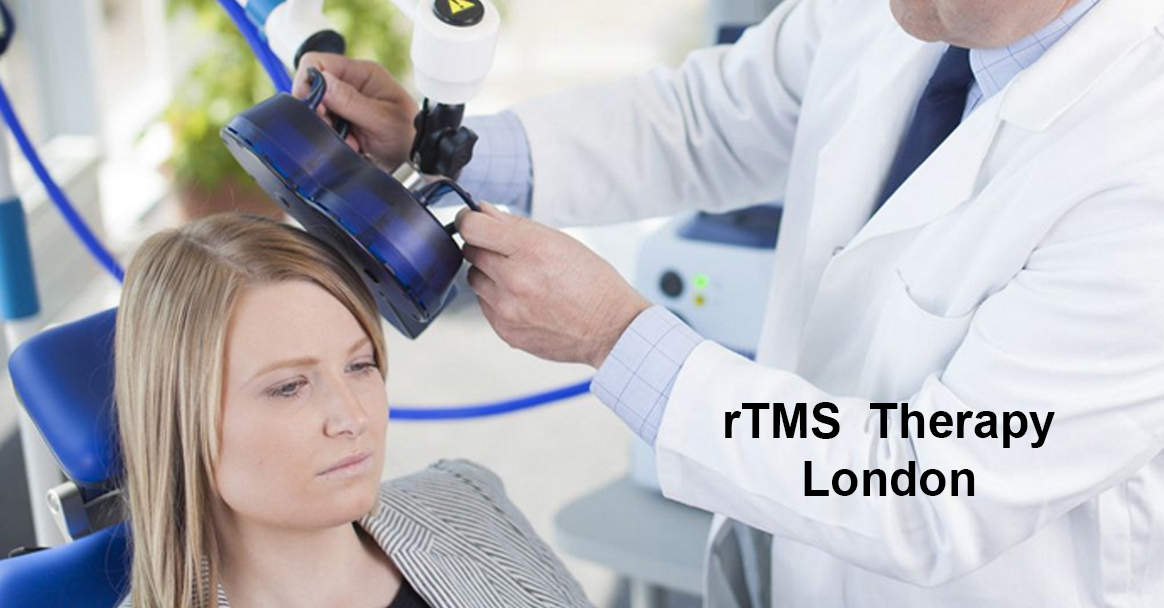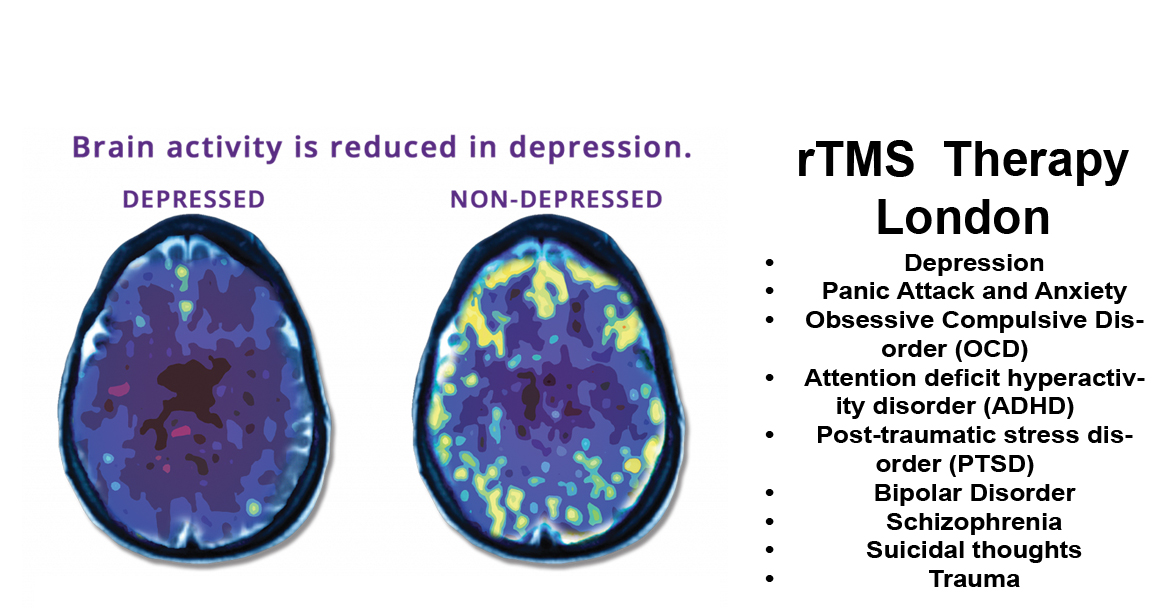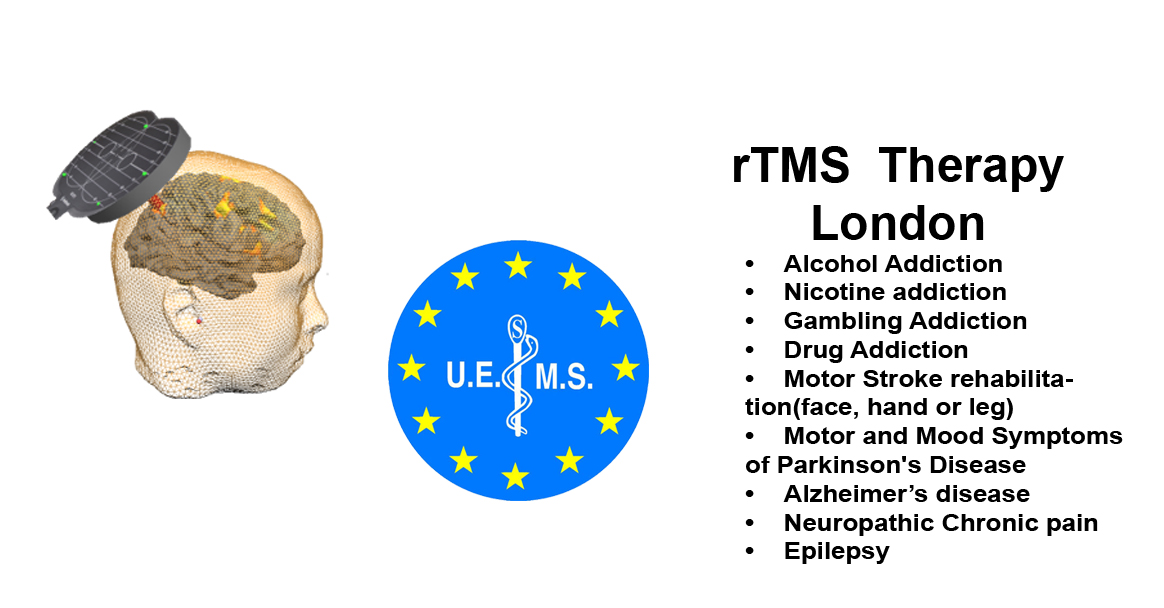SPECIALIST PSYCHOLOGIST ALPTEKIN AYDIN OFFERS OCD TREATMENT!
Transcranial magnetic stimulation for obsessive-compulsive disorder has been approved with MagVenture TMS Therapy®
Specialist Psychologist Alptekin Aydin successfully completed the Clinical Certification Course in Transcranial Magnetic Stimulation (TMS). This course is officially recognised by the European Union of Medical Specialist (UEMS) and accredited by the European Accreditation Council for CME (EACCME)
He is keen to encourage innovative new rTMS treatments combining with Cognitive Behavioural Therapy (CBT) to offer the quickest solutions for mental health conditions without any medication side effects that can occour with antidepressants.
What is obsessive-compulsive disorder (OCD)?
OCD is a mental health disorder characterized by unreasonable thoughts and fears (obsessions) which lead to repetitive behavior (compulsions). OCD can severely affect one’s daily life and routines and cause distress or even functional impairment. Although pharmaceutical and psychological interventions are available, some OCD patients experience limited results from these and need more therapeutic options.Transcranial Magnetic Stimulation (TMS) uses magnetic pulses to stimulate a specific area in the brain in order to improve the OCD symptoms. MagVenture TMS Therapy® for OCD, FDA (The Food and Drug Administration is responsible for protecting the public health by ensuring the safety, efficacy, and security of human and veterinary drugs, biological products, and medical devices; and by ensuring the safety of our nation's food supply, cosmetics, and products that emit radiation.) approved the option for people suffering from obsessive-compulsive disorder and currently treatment is available at our Southgate - London clinic. In my practice, TMS for OCD is used as an adjunctive neuromodulation option within a wider treatment plan that usually includes medication and CBT, under the overall medical care of the patient’s GP or psychiatrist.
Obsessions
Obsessions are recurrent and persistent thoughts, impulses, or images that cause distressing emotions such as anxiety or disgust. Many people with OCD recognize that the thoughts, impulses, or images are a product of their mind and are excessive or unreasonable. However, the distress caused by these intrusive thoughts cannot be resolved by logic or reasoning. Most people with OCD try to ease the distress of the obsessions with compulsions, ignore or suppress the obsessions, or distract themselves with other activities.
Typical obsessions:
Fear of getting contaminated by people or the environment
Disturbing sexual thoughts or images
Fear of blurting out obscenities or insults
Extreme concern with order, symmetry, or precision
Recurrent intrusive thoughts of sounds, images, words, or numbers
Fear of losing or discarding something important
Compulsions
Compulsions are repetitive behaviors or mental acts that a person feels driven to perform in response to an obsession. The behaviors typically prevent or reduce a person's distress related to an obsession. Compulsions may be excessive responses that are directly relate to an obsession (such as excessive hand washing due to the fear of contamination) or actions that are completely unrelated to the obsession. In the most severe cases, a constant repetition of rituals may fill the day, making a normal routine impossible.
How to treat OCD by Combining TMS treatment with CBT Cognitive Behavioural Therapy
Evidence on the safety of transcranial magnetic stimulation for obsessive-compulsive disorder raises no major safety concerns. At our Southgate/London clinic, TMS Therapy is an adjunct treatment to existing OCD therapies which may involve pharmaceutical and behavioral therapy. It is an out-patient procedure with no systemic side effects. The treatment specifically targets the networks in the brain which are known to be particularly affected by OCD, including the deeper-lying structures.
Combining TMS treatment with CBT Cognitive Behavioural Therapy helps the patient explore and understand alternative ways of thinking and challenging their beliefs through behavioural exercises It’s based on the concept that your thoughts, feelings and actions are interconnected, and that negative thoughts and feelings can trap you in a vicious cycle, as the image perfectly illustrates. The principal aim of this therapeutic approach is to enable the person to become their own therapist and to provide them with the knowledge and tools to continue working towards complete recovery from OCD and with the Neurological help of TMS treatment you will be able to handle
repeated, persistent and unwanted thoughts, urges or images that are intrusive and cause distress or anxiety.
What else can be treated with TMS?
- Depression
- Panic Attack and Anxiety
- Alcohol Addiction
- Nicotine addiction
- Gambling Addiction
- Drug Addiction
- Obsessive Compulsive Disorder (OCD)
- Attention deficit hyperactivity disorder (ADHD)
- Post-traumatic stress disorder (PTSD)
- Bipolar Disorder
- Schizophrenia
- Suicidal thoughts
- Trauma
- Motor Stroke rehabilitation(face, hand or leg)
- Motor and Mood Symptoms of Parkinson's Disease
- Alzheimer’s disease
- Neuropathic Chronic pain
- Epilepsy

Is TMS covered by the NHS?
At present, TMS treatment is widely available through private clinics in the UK. Some TMS clinics are working towards establishing a joint effort with their local NHS trust & the clinical commissioning group (CCG) within their region to provide funding for severe cases. This relationship is in a work in progress and will take some time to be established.
The treatment was approved by NICE in 2015 for treating depression; yet as a new treatment, it is not widely available in the UK, with just few NHS trusts and a handful of private clinics offering the service. Now TMS treatment is available at our Barnet / Southgate London clinic
As a specialist psychologist & TMS practitioner, using combination of latest technology devices and personal experience, knowledge and expertise for the harm-reduction and therapeutic treatment.
We know that the combination of latest technology devices and personal experience, knowledge and expertise for managing the TMS machines cannot be considered as a cheap treatment but when we consider the benefits, quick solutions almost without any side effects, rTMS therapy offers a huge opportunity for those who suffer from any ongoing Motor Stroke issues, Depression, OCD, Panic Attack & Anxiety, Substance Misuse or any other mental health issues.
Please contact for the initial assessment and treatment options CONTACT US




